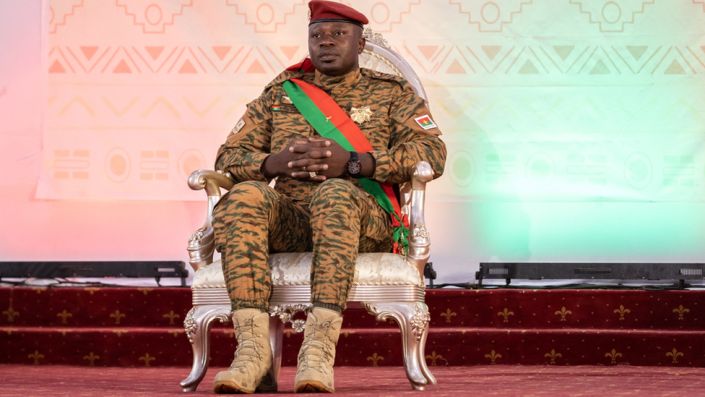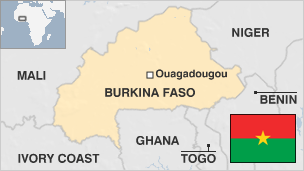
A poor country even by West African standards, landlocked Burkina Faso has suffered from recurring droughts and military coups.
Burkina Faso, which means “land of honest men”, has significant reserves of gold, but the country has faced domestic and external concern over the state of its economy and human rights.
A former French colony, it gained independence as Upper Volta in 1960.
In 1983 Captain Thomas Sankara seized power and adopted radical left-wing policies but was ousted by Blaise Compaore, who went on to rule for 27 years before being ousted in a popular uprising in 2014.
The spread of jihadist violence from neighbouring Mali prompted the army to seize control in January 2022.
President: Paul-Henri Sandaogo Damiba


Lieutenant-General Damiba ousted President Marc Kabore in January 2022 over the government’s failure to halt an insurgency by jihadist groups gripping the north of the country.
He dissolved the government and parliament, and suspended the constitution. Although he has promised to begin talks on restoring democracy, the new president has set no timetable.
Mr Kabore had served as prime minister and speaker of parliament under veteran President Blaise Compaore before going on to win presidential elections in 2015 and 2020.
But, like his neighbours, he found his domestic agenda undermined by the spread of jihadist groups from Mali, and the attendant military and security problems.
MEDIA


Some key events in Burkina Faso’s history:


1896 – Kingdoms now making up Burkina Faso become a French protectorate, later known as Upper Volta.
1960 – Upper Volta becomes independent with Maurice Yameogo as president. He is overthrown in 1966 by Sangoule Lamizana.
1980 – President Lamizana is ousted in coup led by Saye Zerbo, who is overthrown two years later by Jean-Baptiste Ouedraogo, ushering in a period of unrest and power struggles.
1984 – Upper Volta renamed Burkina Faso.
1990 – Blaise Compaore, who assumed power when he ousted and killed Thomas Sankara in 1987, introduces limited democratic reforms. He remains in power for 27 years.
2014 – President Compaore steps aside following massive protests against plans to extend his rule. A transitional government takes charge.
2022 – Army seizes power in the face of a growing jihadist insurgency.






